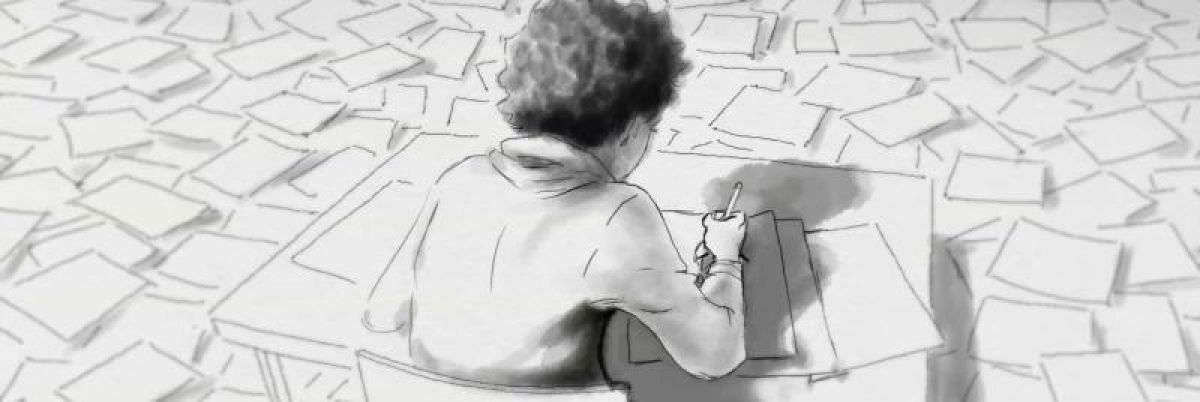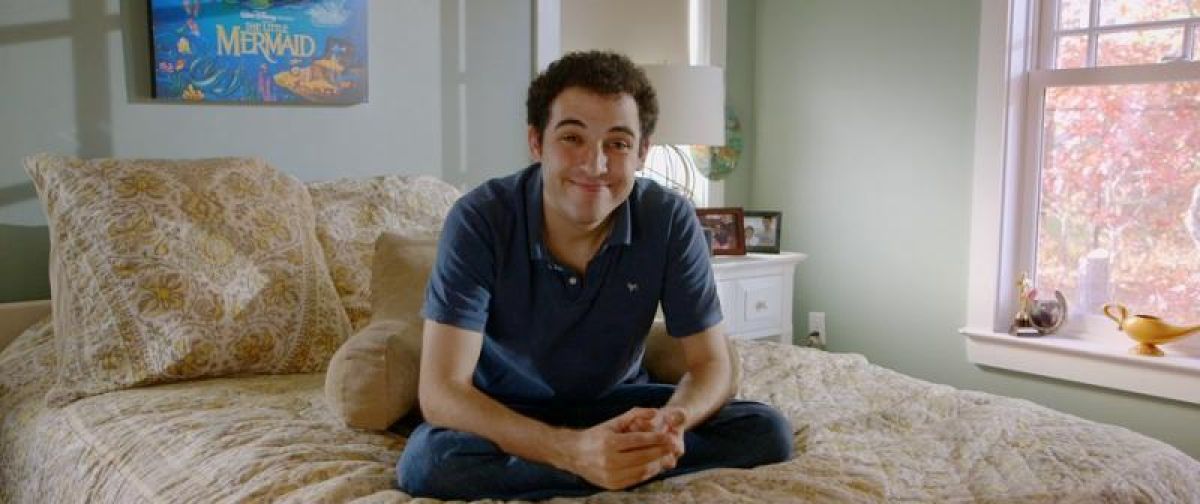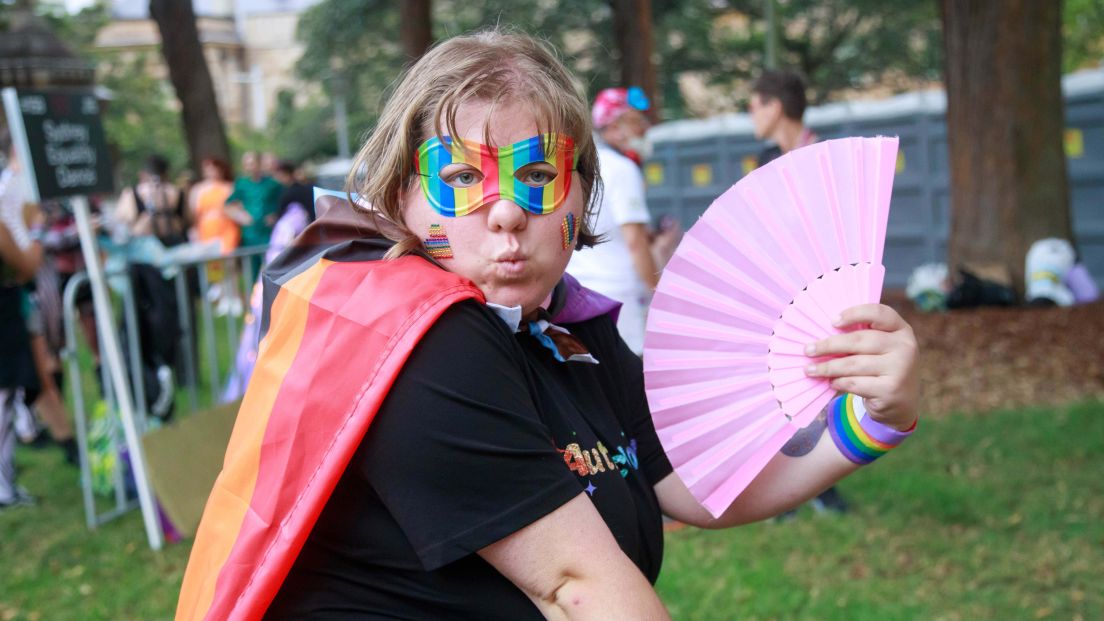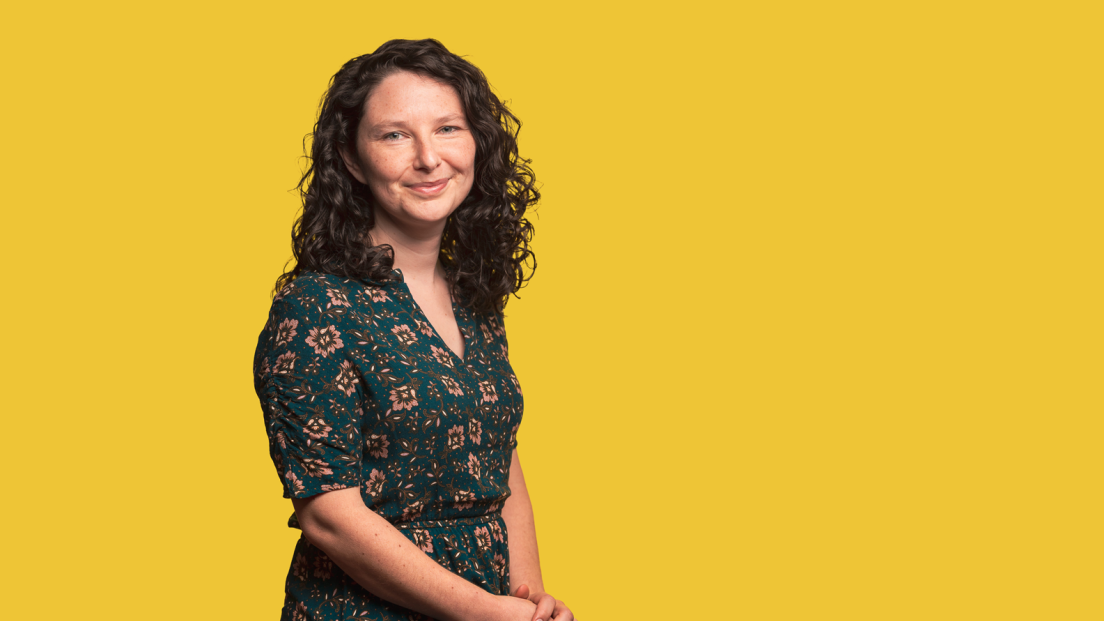Heading into this movie, I admittedly thought I was going to hate it. Not because it focused on a person severely affected by autism but because I thought the movie would portray this in a negative light. Fortunately, that was not the case, as it featured a family who were very supporting and encouraging of Owen, and who refused to give up on him as he grew up.
The documentary opens up with home video footage being meshed together with pencil artwork, setting up the documentary. The artwork continues to appear throughout the movie, which brings a unique and surprisingly interesting touch to the documentary. It portrays the hardships and triumphs that our main protagonist would go through in his life so far.
Owen’s battle with autism first began at the age of three, when his voice became garbled, his motor skills dropped, and his walking began to become problematic. At that point, his parents admitted that they thought their son was, at first, kidnapped. Things began to change when Owen begun to rely on Disney films to speak, and with a song from The Little Mermaid providing the quote “It won’t cost much/Just your voice!” it proved to be the catalyst for Owen to fight against his disability, and for his parents to attempt to help Owen escape the supposed prison.
His family’s attempted rescue would continue to escalate, to the point where Owen delivers a complex sentence about his brother Walt, knowing that he doesn’t want to grow up ‘like Mowgli or Peter Pan’. Realising that Owen is using the power of Disney to speak and be more familiar with the world around him, his father decides to roleplay as Iago to start a conversation with him. And Owen responds. Following this, the family proceed to use this as a window of opportunity to speak to Owen.
During his high school years, Owen started a ‘Disney Club’ in an attempt to become more sociable, which proved to be a huge success for him. He encouraged fellow classmates to speak up, and even played ‘Teacher’ with the students by asking questions about certain scenes. Wanting to finish his final club with a surprise, Owen manages to bring in Jonathan Freeman and Gilbert Gottfried, the voices of Jafar and Iago from Disney’s Aladdin, to make a guest appearance for the club. It felt very heart-warming to see the two voice actors recite the lines of their respective characters in Jafar and Iago and to see the joy on the faces of Owen and his friends.
That said, Owen, like many people with autism, has had his down points in life. At one point in high school, he became withdrawn after being bullied and tormented; to the point that he believed that the bullies would ruin his life and subsequently he went into the darkness. During this time, Owen went downstairs to draw Disney characters in a book, but he wasn’t drawing the heroic or villainous characters; instead, the book contained only the sidekicks recognisable in Disney films, including the red parrot, Iago himself. The book’s last two pages carried the following powerful quotes: “I (Owen) am the protector of the sidekicks” and “No sidekick gets left behind”.
It’s interesting, because of what was going on in Owen’s mind at this time. My guess is that he ended up relating more to the sidekicks than the heroes in the movies. While one would normally question why someone would focus the light on them, instead of the main characters, Owen would be more welcoming to this idea. He has made friends with some of those key sidekicks in his youth, which ended up inspiring him to create his own story about protecting the sidekicks. And giving the sidekicks the main focus, it ironically means he becomes the hero of his story, as a young child.
Throughout the documentary, scenes from certain Disney movies accurately sum up what Owen is feeling. For example, when Owen was bullied, we’re shown a scene of Quasimodo being heckled relentlessly after supposedly being accepted as the King of Fools in The Hunchback of Notre Dame. It really is surprising to see how closely some key scenes actually sync up with how one would feel in certain aspects of their life, from moving on from your time at school, to being in your own home for the first time. It’s interesting how well it meshes up.
In the final act of the documentary, Owen gets an opportunity to speak at a conference about autism in France. During preparation, Owen composes a speech from his heart, notably taking some inspiration of Quasimodo from The Hunchback of Notre Dame as a sign of belonging in the end. For someone who had battled with autism since he was three, Owen Suskind has literally come a long way to get there.
In fact, Owen has done several things that not many people on the spectrum might not get to do. Aside from the press conference, he, influenced by the power of Disney, went on to start a Disney film club at his school and got well-known voice actors to make guest appearances in said club. He’s moved into his own place to live in, is in a relationship, has a job at a movie theatre, and has even gone so far as to create his own story centred on the sidekicks of Disney. Owen should be the conquering hero of autism in the modern era; he symbolises endurance, courage and hope. And he’s still learning to handle whatever curveballs life throws at him.
This documentary had me smiling to my core by the time it finished, thanks to Owen and his supportive family, among other things. It’s no secret that anyone with autism will not have an easy life ahead, but it helps if you have a family that can help you. Whether it’s a father who would play puppeteer to a character for you, or a mother who would give her undying love and support to you, or even a brother who would be willing to stand up for you regardless of what you’re dealing with, you can at least have the courage to say to yourself that you’re not alone.
Ben will continue to review film and TV programs for us, so stay tuned for his next installment.



